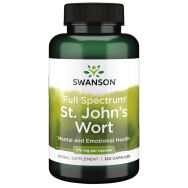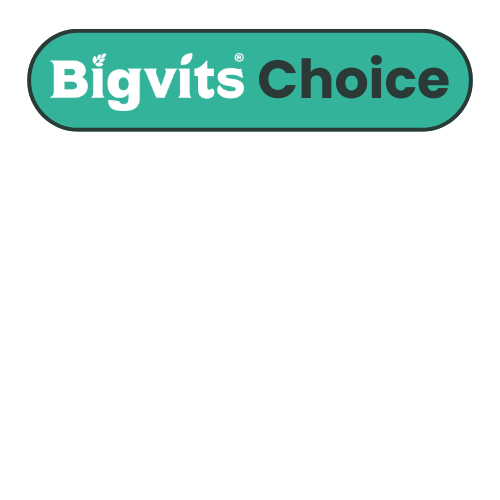Herbal Remedies for Mood and Mental Health: Popular Supplements, How They Work, and Precautions

Herbal supplements have been used for centuries as natural remedies for various ailments, including mental health issues such as depression, anxiety, and stress. Some popular herbal supplements for mood and mental health include St. John's Wort, Ashwagandha, Rhodiola, and Korean Ginseng. In this article, we'll explore the potential benefits of these herbal supplements, how they work, and the safety considerations to keep in mind.
St. John's Wort
St. John's Wort is a herb that has been used for centuries to treat mild to moderate depression. It contains active ingredients such as hyperforin and hypericin, which are thought to increase levels of neurotransmitters such as serotonin, dopamine, and norepinephrine in the brain. Some studies have shown that St. John's Wort can be as effective as prescription antidepressants for mild to moderate depression, with fewer side effects.
Ashwagandha
Ashwagandha is a herb commonly used in Ayurvedic medicine to help manage stress and anxiety. It is an adaptogen, which means it helps the body adapt to stress and promotes balance. Ashwagandha is thought to work by reducing levels of the stress hormone cortisol, which can help improve mood and reduce anxiety.
Rhodiola
Rhodiola is a herb that has been traditionally used in Russia and Scandinavia to help manage stress and increase energy levels. It is an adaptogen like ashwagandha, and is thought to work by increasing levels of neurotransmitters such as serotonin, dopamine, and norepinephrine in the brain. Some studies have shown that Rhodiola may help reduce symptoms of depression and anxiety, and improve cognitive function.
Korean Ginseng
Korean Ginseng, also known as Panax ginseng, is a herb commonly used in traditional Chinese medicine to help improve mental clarity, energy levels, and mood. It is thought to work by increasing levels of neurotransmitters such as acetylcholine and dopamine in the brain. Some studies have shown that Korean Ginseng may help reduce symptoms of depression and anxiety, and improve overall mood and wellbeing.
How Herbal Supplements Work and Potential Benefits
Herbal supplements work in various ways to improve mood and mental health. Some herbs, such as St. John's Wort, contain active ingredients that increase levels of neurotransmitters such as serotonin, dopamine, and norepinephrine in the brain, which can improve mood and reduce symptoms of depression and anxiety. Other herbs, such as ashwagandha and Rhodiola, are adaptogens that help the body adapt to stress and promote balance, which can reduce levels of the stress hormone cortisol and improve overall mood and wellbeing. Korean Ginseng is thought to work by increasing levels of neurotransmitters such as acetylcholine and dopamine in the brain, which can improve mental clarity, energy levels, and mood.
Safety considerations and potential risks of herbal supplements
While herbal supplements are generally considered safe, they do have potential risks and side effects. St. John's Wort, for example, can interact with certain medications such as antidepressants and birth control pills, and may cause side effects such as dry mouth, dizziness, and upset stomach. Ashwagandha may interact with certain medications and cause side effects such as nausea and diarrhoea. Rhodiola may cause dizziness and dry mouth, and may interact with certain medications. Korean ginseng may cause insomnia, headaches, and digestive issues.
It's important to do your research and speak with a healthcare provider before taking any herbal supplements, especially if you have any pre-existing medical conditions or are taking medication. Additionally, it's important to purchase herbal supplements from reputable sources to ensure quality and safety, and to thoroughly read any directions of use or dosage information on your supplement’s packaging.
References
Sarris, J., & Wardle, J. (2010). Clinical Naturopathy: An evidence-based guide to practice. Elsevier Health Sciences.
Lakhan, S. E., & Vieira, K. F. (2010). Nutritional and herbal supplements for anxiety and anxiety-related disorders: systematic review. Nutrition Journal, 9(1), 42.
University of Maryland Medical Center. (2020). St. John's Wort. Retrieved from https://www.umms.org/ummc/health-library/holistic/00/123/st-johns-wort
Pratte, M. A., Nanavati, K. B., Young, V., & Morley, C. P. (2014). An alternative treatment for anxiety: a systematic review of human trial results reported for the Ayurvedic herb ashwagandha (Withania somnifera). Journal of Alternative and Complementary Medicine, 20(12), 901-908.
Cropley, M., Banks, A. P., Boyle, J. (2015). The effects of Rhodiola rosea L. extract on anxiety, stress, cognition and other mood symptoms. Phytotherapy Research, 29(12), 1934-1939.
Kim, H. G., Cho, J. H., Yoo, S. R., Lee, J. S., Han, J. M., Lee, N. H., ... & Son, C. G. (2013). Antidepressant effects of ginseng total saponins in the forced swimming test and chronic mild stress models of depression. Progress in Neuro-Psychopharmacology and Biological Psychiatry, 41, 19-26.

















